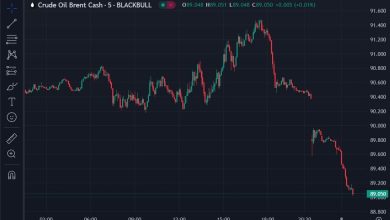Amazon Reportedly Ran a Secret Store to Get Intel on Its Competitors

Amazon is so obsessed with dominating the e-commerce world that it has reportedly spent years gathering information on competitors like Walmart and eBay by selling products directly on their websites.
The tech giant launched a company called Big River Services International as part of “Project Curiosity,” a 2015 effort to understand how Amazon’s competitors in retail, logistics and related fields were managing their businesses, The Wall Street Journal reported Wednesday.
Big River sold items such as T-shirts, shoes and beach chairs on competing platforms. Its goal was to obtain information from its competitors that Amazon could then use to inform its own business decisions, according to the Journal.
Big River employees also went to great lengths to hide their ties to Amazon, even when chatting with other Amazon workers. They downplayed electronic records of their work, even as they informed top Amazon executives about what they found. Executives viewed printed copies of the Big River team’s reports and were not allowed to keep them, although they were allowed to take notes, the Journal reported.
Employees also used separate, non-Amazon email addresses when chatting with other companies, the report said. They were even trained on how to respond if someone found out they actually worked for Amazon, the Journal reported.
“Benchmarking is standard practice in business,” an Amazon spokesperson told Business Insider, using an industry term for comparing itself to competitors. “Amazon, like many other retailers, has benchmarking and customer experience teams that conduct research into customer experiences, including those of our business partners, to improve their experience working with us .”
After Big River joined a fulfillment program for e-commerce sellers run by FedEx, for example, Big River employees relayed pricing and other terms of the service to Amazon’s logistics team, which then made changes based on the information, the Journal reported.
Amazon’s spokesperson said a review of internal documents did not “identify any instances where an Amazon employee obtained pricing information from FedEx before its launch or used that information to adjust our own prices or to discuss prices with sellers.
“The information we reviewed indicates that the pricing information was obtained after FedEx launched FedEx Fulfillment on February 7, 2017, and this information was one of several information considered as part of the pricing discussions “, the spokesperson told BI.
Big River also developed its own brands to sell on competing marketplace websites. These include an India-based brand called Crimson Knot that sells photo frames on Indian e-commerce site Flipkart, as well as a streetwear brand called Not So Ape, which used a website hosted by Shopify to sell in the United States, according to the Journal. .
Amazon has previously faced scrutiny for its treatment of sellers on its own platform. A congressional committee found in 2020 that the company used sales data from third-party sellers to create its own version of products — typically to the detriment of independent sellers and their businesses.
A lawsuit filed last year by the FTC also claimed that Amazon effectively raised prices by increasing what the company charged its third-party sellers and punishing them for offering lower prices on websites other than ‘Amazon.
businessinsider




